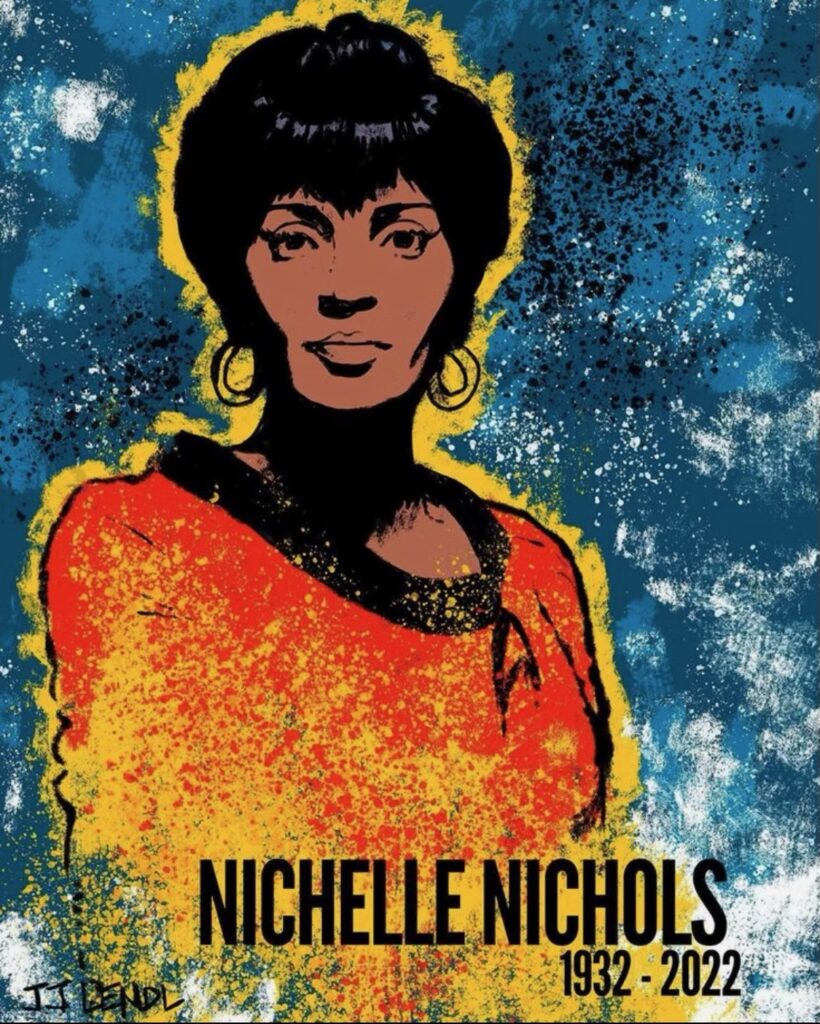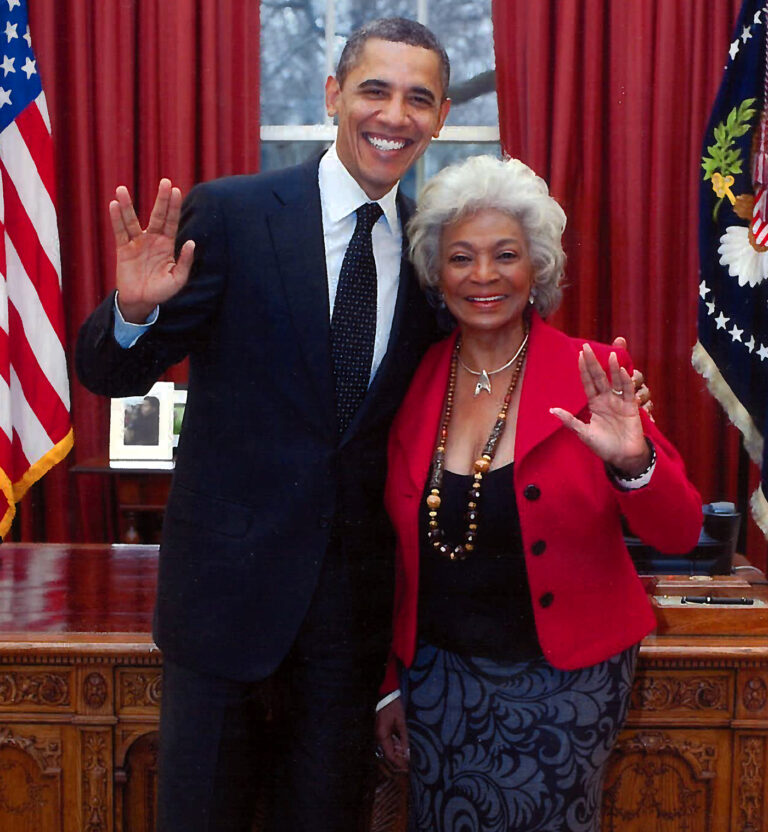
Nichelle Nichols
Show-stopping entertainer. Civil rights advocate. Ground-breaking voice of recruitment for NASA. The “first” of many world-changing milestones as millions saw themselves represented in her.
Nichelle Nichols, the actress revered by “Star Trek” fans for her role as Lieutenant Uhura not only created a ripple in the fabric of history through her impact on various communities but continues to do so through the effect of her work on inspiring future generations.
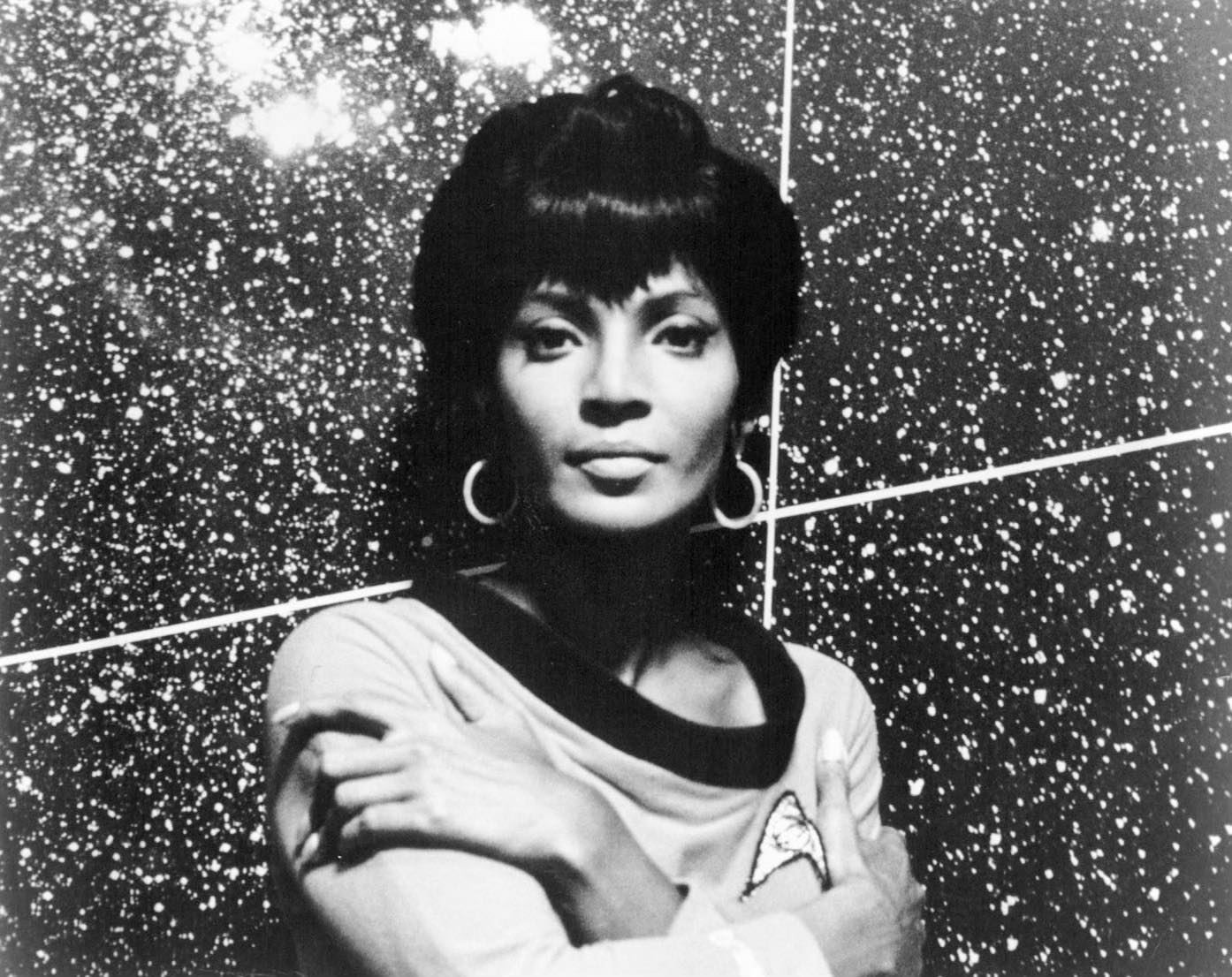
A striking beauty, Ms. Nichols played Lieutenant Uhura an officer and a highly educated and well-trained technician who maintained a businesslike demeanor while performing her high-minded duties. Ms. Nichols was among the first Black women to have a leading role on a network television series, making her an anomaly on the small screen, which until that time had rarely depicted Black women in anything other than subservient roles.
In a November 1968 episode, during the show’s third and final season, Captain Kirk and Lieutenant Uhura are forced to embrace by the inhabitants of a strange planet, resulting in what is widely thought to be the first interracial kiss in television history.
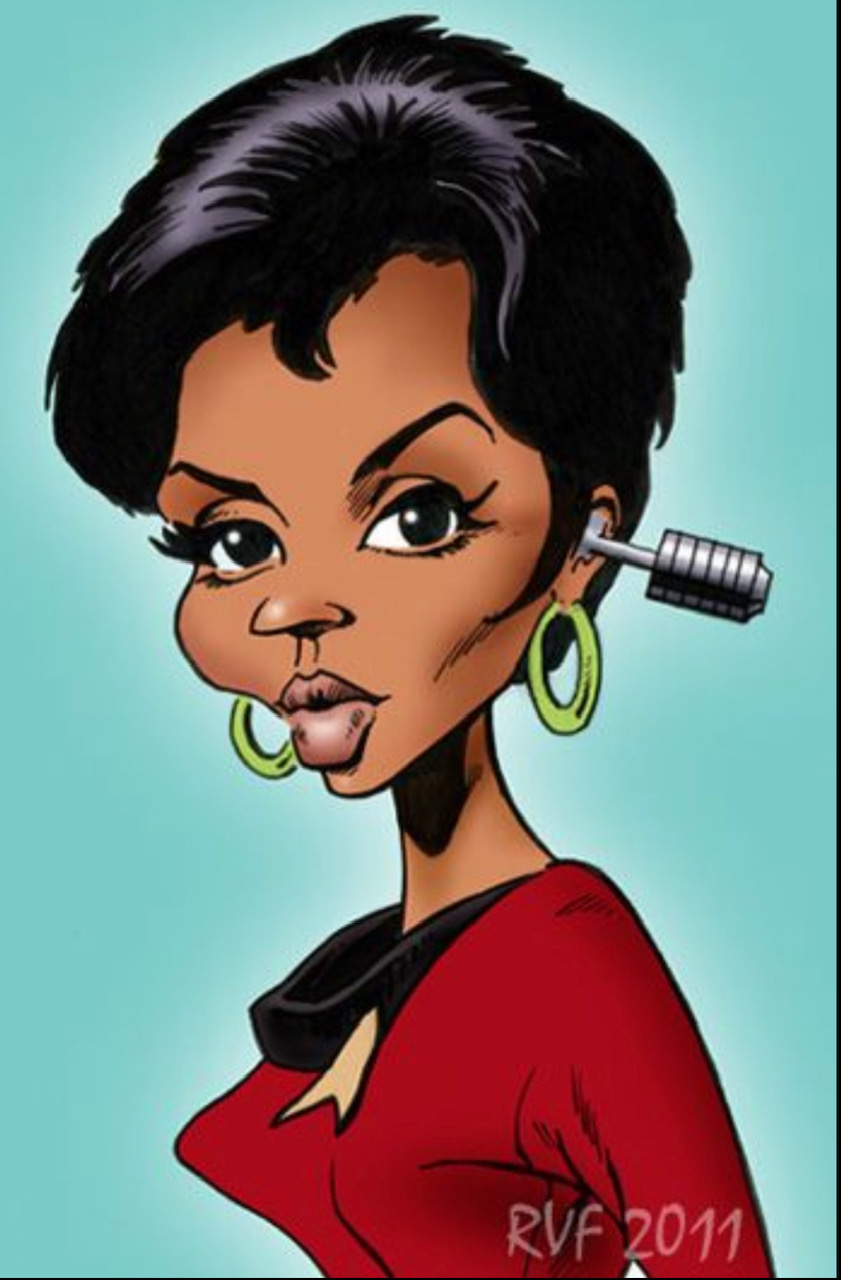
But Uhura’s influence reached far beyond television. In 1977, Ms. Nichols began an association with the National Aeronautics and Space Administration, contracting as a representative and speaker to help recruit female and minority candidates for spaceflight training; the following year’s class of astronaut candidates was the first to include women and members of minority groups.
In subsequent years, Ms. Nichols made public appearances and recorded public service announcements on behalf of the agency. In 2012, after she was the keynote speaker at the Goddard Space Center during a celebration of African American History Month, a NASA news release about the event lauded her help for the cause of diversity in space exploration.
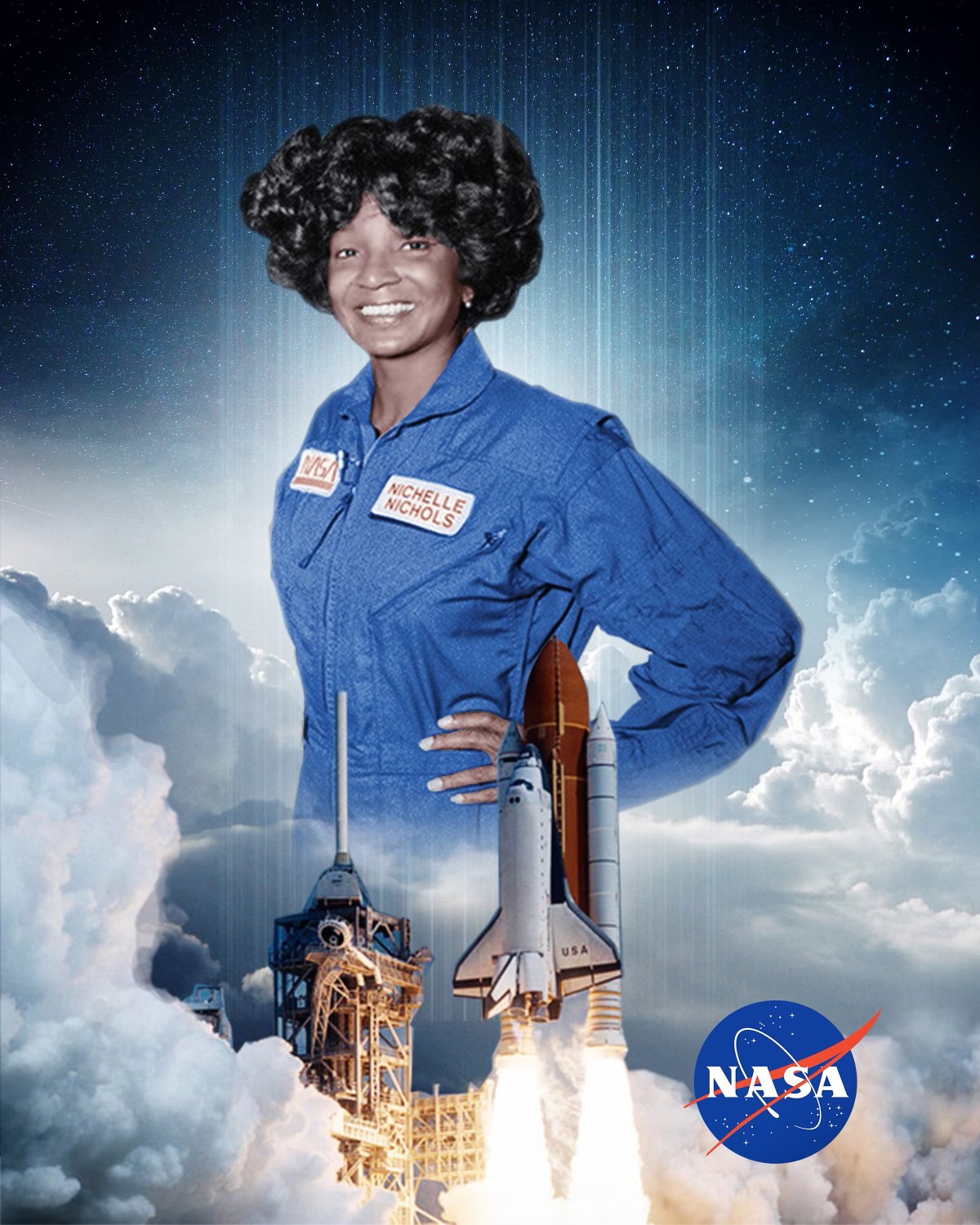
“Nichols’s role as one of television’s first Black characters to be more than just a stereotype and one of the first women in a position of authority (she was fourth in command of the Enterprise) inspired thousands of applications from women and minorities,” the release said. “Among them: Ronald McNair, Frederick Gregory, Judith Resnik, first American woman in space Sally Ride and current NASA administrator Charlie Bolden.”
“Nichelle Nichols was a trailblazing actress, advocate, and dear friend to NASA. At a time when Black women were seldom seen on screen, Nichelle’s portrayal as Nyota Uhura on Star Trek held a mirror up to America that strengthened civil rights. Nichelle’s advocacy transcended television and transformed NASA.” Said NASA Administrator Bill Nelson. “After Apollo 11, Nichelle made it her mission to inspire women and people of color to join this agency, change the face of STEM and explore the cosmos. Nichelle’s mission is NASA’s mission. Today, as we work to send the first woman and first person of color to the Moon under Artemis, NASA is guided by the legacy of Nichelle Nichols.”
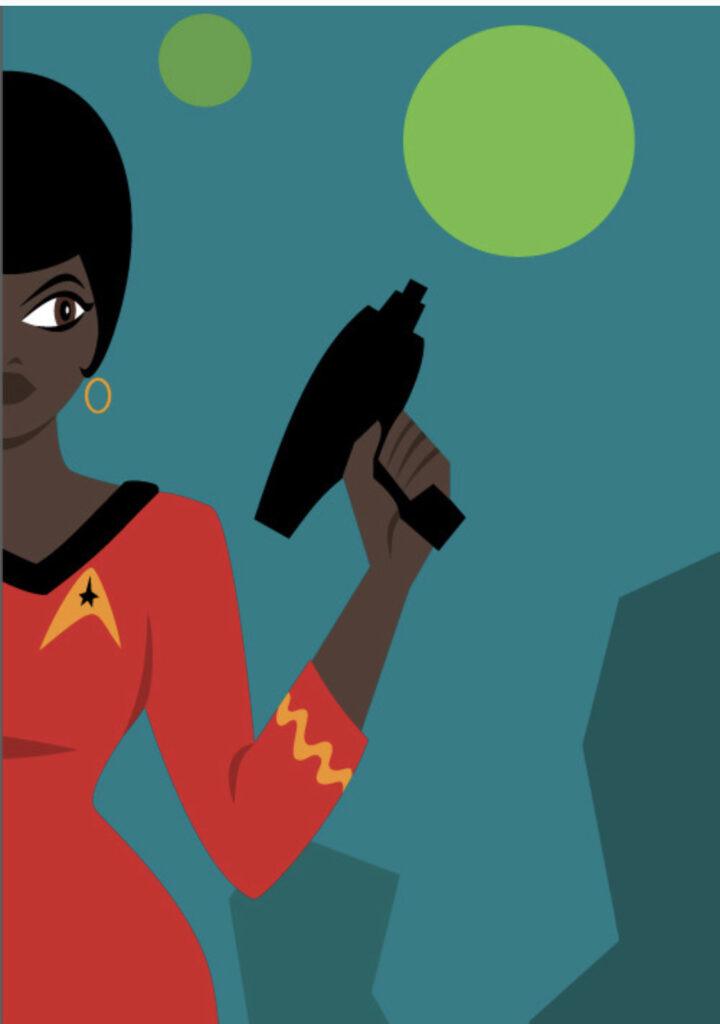
Grace Dell Nichols was born in Robbins, Ill., on Dec. 28, 1932 (some sources give a later year), and grew up in Chicago. Her father, a chemist, was the mayor of Robbins for a time. At 13 or 14, tired of being called Gracie by her friends, she requested a different name from her mother, who liked Michelle but suggested Nichelle for the alliteration.
Ms. Nichols was a ballet dancer as a child and had a singing voice with a naturally wide range — more than four octaves, she later said. While attending Englewood High School in Chicago she landed her first professional gig, in a revue at the College Inn, a well-known nightspot in the city.
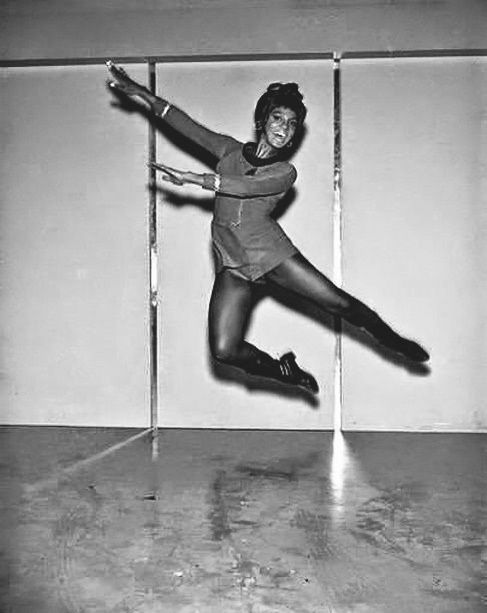
There she was seen by Duke Ellington, who employed her a year or two later with his touring orchestra as a dancer in one of his jazz suites.
Ms. Nichols appeared in several musical theater productions around the country during the 1950s. In 1959, she was a dancer in Otto Preminger’s film version of “Porgy and Bess.” She made her television debut in 1963 in an episode of “The Lieutenant,” a short-lived dramatic series, created by Gene Roddenberry, about Marines at Camp Pendleton. Mr. Roddenberry went on to create “Star Trek.”
Ms. Nichols appeared on other television shows over the years — among them “Peyton Place” (1966), “Head of the Class” (1988) and “Heroes” (2007). She also appeared onstage in Los Angeles, including in a one-woman show in which she did impressions of, and paid homage to, Black female entertainers who preceded her, including Lena Horne, Pearl Bailey and Eartha Kitt.
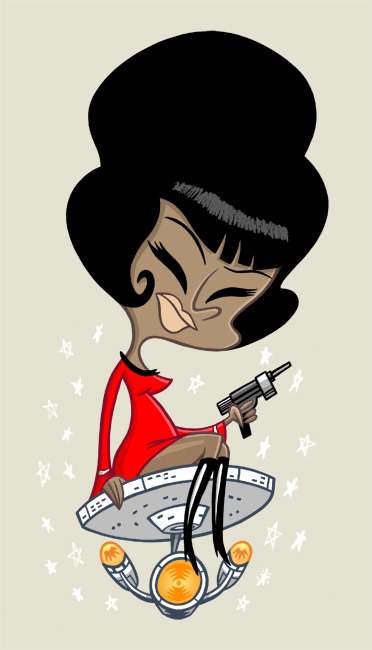
But Uhura was to be her legacy. A decade after “Star Trek” went off the air, Ms. Nichols reprised the role in “Star Trek: The Motion Picture,” and she appeared as Uhura, by then a commander, in five subsequent movie sequels through 1991.
In her 1995 autobiography, “Beyond Uhura: Star Trek and Other Memories,” she disclosed that she and Mr. Roddenberry, who died in 1991, had been romantically involved for a time. In an interview in 2010 for the Archive of American Television, she said that he had little to do with her casting in “Star Trek” but that he defended her when studio executives wanted to replace her.
When she took the role of Uhura, Ms. Nichols said, she thought of it as a mere job at the time, valuable as a résumé enhancer; she fully intended to return to the stage, as she wanted a career on Broadway. Indeed, she threatened to leave the show after its first season and submitted her resignation to Mr. Roddenberry. He told her to think it over for a few days.

In a story she often told, she was a guest that Saturday night at an event in Beverly Hills, Calif. — “I believe it was an N.A.A.C.P. fund-raiser,” she recalled in the Archive interview — where the organizer introduced her to someone he described as “your biggest fan.”
“He’s desperate to meet you,” she recalled the organizer saying.
The fan, the Rev. Dr. Martin Luther King Jr., introduced himself.
“He said, ‘We admire you greatly, you know,’ ” Ms. Nichols said, and she thanked him and told him that she was about to leave the show. “He said, ‘You cannot. You cannot.’”
Dr. King told her that her role as a dignified, authoritative figure in a popular show was too important to the cause of civil rights for her to forgo. As Ms. Nichols recalled it, he said, “For the first time, we will be seen on television the way we should be seen every day.”
On Monday morning, she returned to Mr. Roddenberry’s office and told him what had happened.
“And I said, ‘If you still want me to stay, I’ll stay. I have to.’” (New York Times, 2022)

Actress Whoopi Goldberg, who later starred in Star Trek: The Next Generation, remarked in a recent interview, “Nichelle was the first Black person I’d ever seen who made it to the future. She was head of communications. This show and this woman was a beacon that said yes, we’ll be there. And it just made me feel like that was an amazing thing, and she helped propel other women to go into space.”
A portion of Nichelle Nichols ashes is headed to deep space aboard the Celestis Enterprise Flight alongside many of her Star Trek colleagues, including dear friend Gene Roddenberry. Her legacy will continue to live on eternally soaring through the cosmos, as well as the Nichelle Nichols Foundation carrying her message to inspire future generations of young people of diverse backgrounds to pursue their dreams.
In her words:
“Star Trek represented, and still does represent, the future we can have, a future that is beyond the petty squabbles we are dealing with here on Earth, now as much as ever, and we are able to devote ourselves to the betterment of all humankind by doing what we do so well: explore. This kind of a future isn’t impossible – and we need to all rethink our priorities to really bring that vision to life.”
